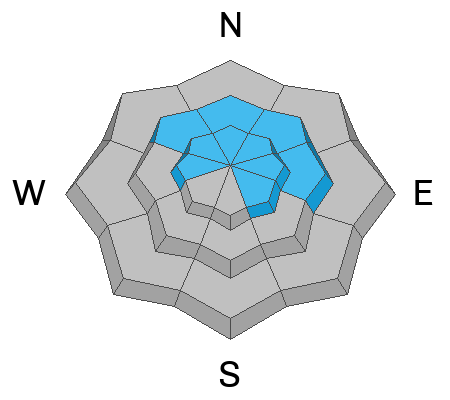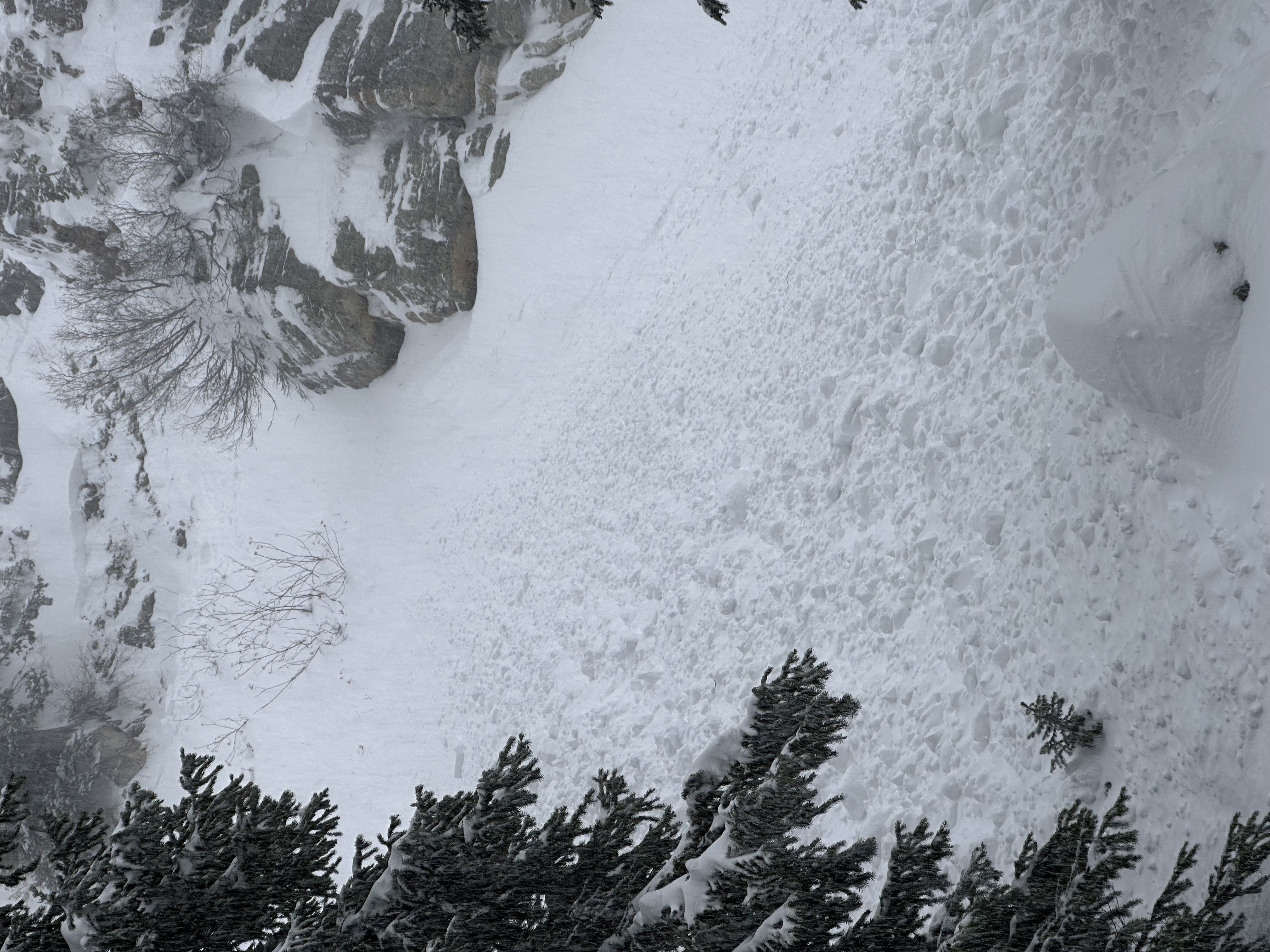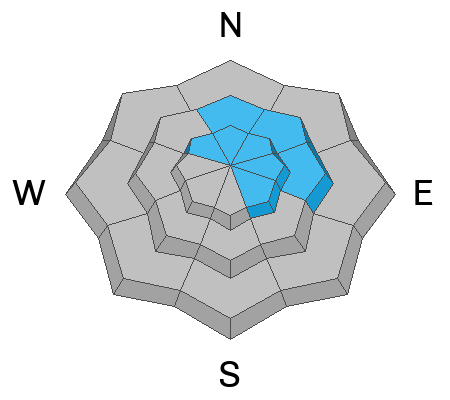Forecast for the Logan Area Mountains

Issued by Toby Weed on
Monday morning, December 4, 2023
Monday morning, December 4, 2023
The danger is HIGH on upper-elevation slopes facing northwest through east. CONSIDERABLE danger exists on many other drifted mid and upper-elevation slopes.
The danger is MODERATE, and avalanches are possible on slopes steeper than 30 degrees at low elevations and those bare of snow before the storm. However, we expect these to stabilize pretty quickly.
People should avoid traveling on or under drifted north and east-facing slopes at upper elevations.

Low
Moderate
Considerable
High
Extreme
Learn how to read the forecast here










